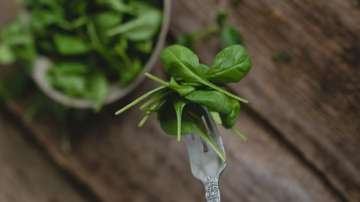Basil seeds, also known as Sabja seeds or Tukmaria seeds, are small black seeds extracted from the sweet basil plant, scientifically known as Ocimum basilicum. While basil leaves are commonly used as a culinary herb, the seeds offer a range of benefits that might not be as widely recognized.
Delve into the lesser-known yet impressive health benefits of basil seeds, also referred to as Sabja seeds. These seeds, derived from the sweet basil plant (Ocimum basilicum), extend beyond their conventional culinary role and offer several noteworthy advantages that might not be commonly acknowledged. Here's a closer look at these seven distinctive health benefits:
-
Digestive Support: Basil seeds contain soluble fiber that, upon soaking, forms a gel-like substance. This aids digestion, potentially reducing bloating and promoting a feeling of fullness, which can contribute to weight management.
-
Blood Sugar Management: With a substantial fiber content, basil seeds could help slow down the absorption of sugars in the digestive system. This mechanism may assist in maintaining stable blood sugar levels.
-
Cooling Properties: Basil seeds are known for their cooling nature. Often used in beverages during hot weather, they might help regulate body temperature and provide a refreshing sensation.
-
Nutrient Source: Basil seeds offer essential nutrients like vitamins, minerals, and antioxidants. These elements play a role in supporting overall health, boosting the immune system, and maintaining cellular well-being.
-
Hydration Aid: Upon contact with water, basil seeds develop a mucilaginous texture that can aid in retaining moisture. This attribute suggests they might serve as a natural option to help maintain hydration levels, especially in situations requiring fluid balance.
-
Skin Health: Basil seeds contain antioxidants that have the potential to benefit the skin. Their consumption could contribute to a more youthful appearance and a healthier complexion by combating oxidative stress.
-
Gut Wellness: The soluble fiber in basil seeds acts as a prebiotic, fostering the growth of beneficial gut bacteria. This supports a balanced gut microbiome, which is linked to various aspects of health.
Incorporating basil seeds into your dietary repertoire allows you to tap into these unique health advantages. However, individual responses can vary, so seeking advice from a healthcare professional before making substantial dietary changes is advisable, especially if you have specific health considerations.
